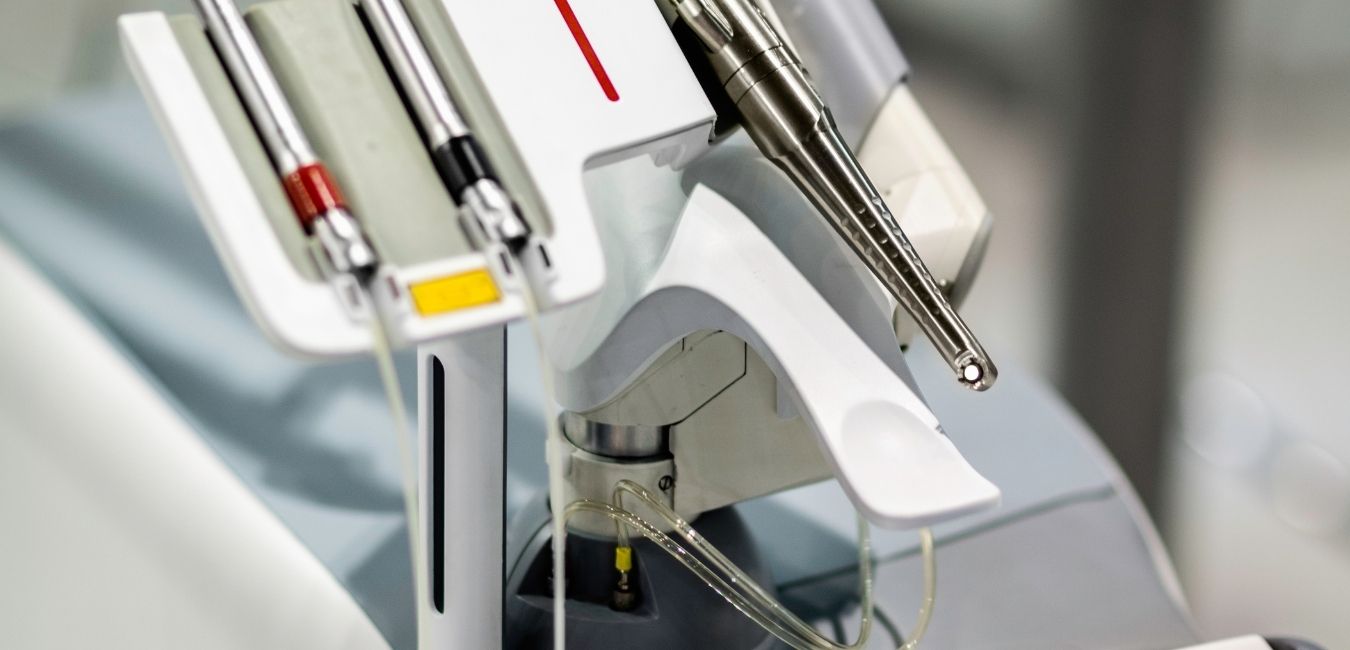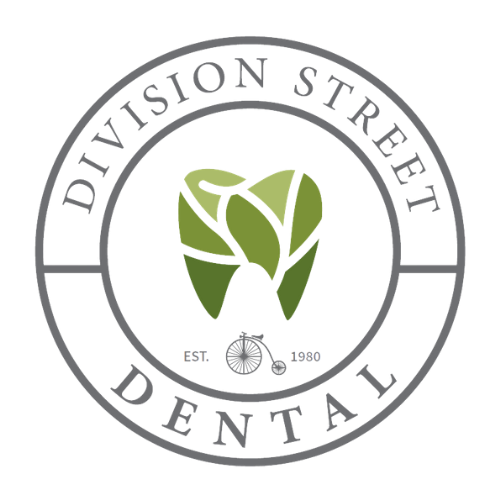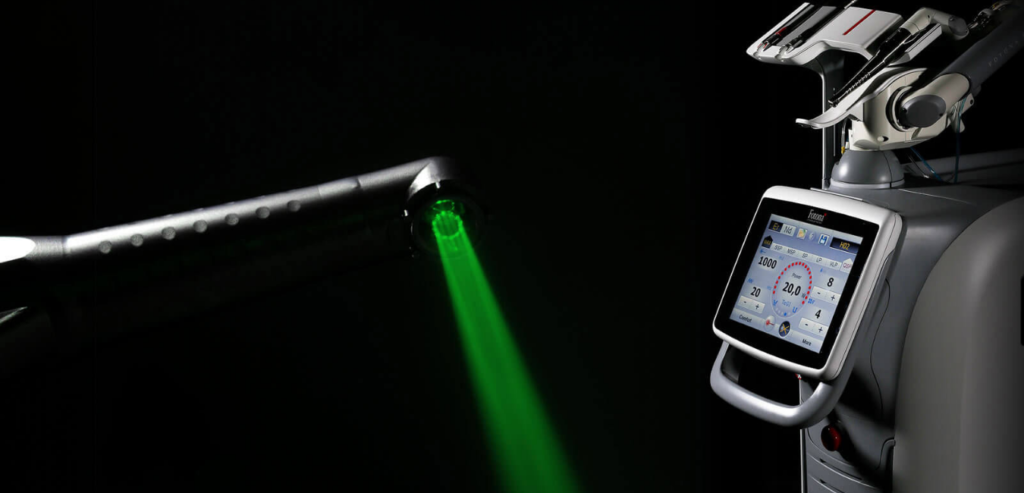Why Laser Dental Care Is Popular?
Portland Laser Dentistry has marked a revolutionary shift in dental care, offering a minimally invasive alternative to traditional dental procedures. This method has grown in popularity as patients seek more sophisticated and less painful solutions for maintaining oral health.
Overview of Procedures
Laser dentistry excels in a variety of procedures including but not limited to:
- Gum treatments and reconstruction
- Periodontal cleaning
- Treating tooth decay and cavities
- Cosmetic dentistry and teeth whitening
These procedures are gaining precedence for their gentle approach to soft tissues, reducing the risk of damage and ensuring the preservation of oral tissues integral to dental health.
Brief History
Laser dentistry has overcome initial challenges where it inadvertently caused damage to teeth and nerve pulp. Today, refined techniques and advanced technology have transformed it into a safe and reliable option for dental care. From its expensive beginnings in the 1990s, laser dentistry has become increasingly affordable and widespread, contributing to its universal appeal.
Comparison with Traditional Dentistry
Advantages of Laser Dentistry: Laser dentistry stands out for being minimally invasive, often removing the need for cuts and thus lowering infection risks. Patients usually experience less discomfort during and after laser treatments, leading to swifter recovery times. Lasers reduce bleeding due to their ability to instantly coagulate blood vessels. Moreover, the decreased dependence on anesthesia is a boon for patients who fear numbing shots.
Limitations of Laser Dentistry: However, the scope of laser dentistry is confined to specific procedures. The high costs of equipment might mean pricier treatments. And not every dentist is trained for or offers laser treatments.
Traditional Dentistry: On the flip side, traditional dentistry, with its time-tested methods, can address a broader range of dental issues. The overall equipment costs might be lower, but this doesn’t guarantee cheaper treatments.
How Laser Dentistry Boosts Oral Health
Treats Gum Diseases
Portland laser dentistry boosts oral health in several ways. As earlier indicated, the technology is quite adept at treating gum disease. Its ability to treat periodontal disease makes it the perfect ally for oral health. The fact that it also creates beautiful smiles makes it even more attractive.
Removes Need for Drills While Fixing Cavities
It’s worth noting that you no longer have to go fordrills to have your cavities filled. Dental drills have become some of the most unpopular traditional dental procedures. Dental lasers now ensure that procedures can be performed without the need for pre-drill local anesthesia.
Minimizes Tissue Trauma
Many dentistry services are capable of destroying some of the oral tissues that are crucial to good dental health. However, that changes with the introduction of laser treatments, which guarantee the following:
- Minimizing damage and trauma to the tissues
- Reduces pain, bleeding, and swelling that often follows dental procedures
- Coagulates the tissues during treatment
Boosts Faster Healing
Laser technology is quite effective at promoting faster healing too. It does this by boosting cellular activity. First, cellular tissues absorb laser light. Next, it stores laser energy in a form that’s easy to use, which promotes the faster healing and regeneration of cells.
Treats Tooth Sensitivity Gently
It’s also important to mention the effect of laser dentistry on tooth sensitivity, which is one of the most troublesome oral health conditions. Apart from that, your dentist should also recommend it for treating multiple conditions that include:
- Sleep apnea
- Snoring
- Canker sores
- Cold sores
How Does Laser Dentistry in Portland, Oregon Work?
Typically, your dentist should perform this form of dentistry in one of two ways; soft or hard tissues. Hard tissue procedures have to do with the teeth, while the soft option focuses more on the gums.
Examples of hard tissue procedures include:
- Cavity detection
- Treatment of tooth sensitivity
- Tooth preparations
- Dental fillings
For their part, soft tissue procedures would revolve around:
- Gummy smile
- Crown lengthening
- Removal of soft tissue folds
- Treatment of tongue frenulum attachment
Several other procedures are also involved, and these range from viewing tissues to and removal of benign tumors. It also involves treatment of obstructive sleep apnea, as earlier indicated. Others are nerve regeneration, teeth whitening, and temporomandibular (TMJ) treatment.
At their core, the lasers operate just like any other surgical laser. They contain crystal, gas, and a solid semiconductor that’s responsible for generating light waves or beams. The single-color and coherent wave of light then elicits a thermal reaction on the affected part.
When operating at lower temperatures, the lasers deactivate oral bacteria without traumatizing or damaging the surrounding tissues. At higher temperatures, the technology cuts and removes inflammatory tissues. Nevertheless, it’s impossible to use the lasers without water
Types of Lasers Used in Portland Laser Dentistry
Essentially, dentists choose only between soft and hard tissue lasers. Hard tissue lasers are capable of cutting right through the extra-tough tooth structure. Consequently, you’re more likely to find them used in the following:
- Shaping or prepping the teeth for composite bonding
- Repairing worn-down dental fillings
- Removal of tooth structure
On the other hand, soft lasers are more helpful in treating periodontitis. They kill bacteria while activating the growth of tissues. Additionally, they are also effective at sealing nerve endings as well as blood vessels. They guarantee as painless a procedure as possible.
NightLase®
At Division Street Dental, we’re pleased to offer NightLase, an innovative and non-invasive approach to address snoring issues. This procedure stimulates collagen production, tightens tissues in the soft palate and uvula, and opens the airway, thereby reducing the severity of snoring.
The NightLase® Procedure
NightLase utilizes the Fotona NightLase® C3 technology. It specifically targets and stimulates collagen production, which peaks 21-28 days after treatment. To achieve maximum benefit, sessions are scheduled strategically to optimize the layering of collagen production.
Reminder for Patients
Please note that most NightLase® treatments require 30 minutes and multiple return visits at 21-28 day intervals for efficacy. This treatment is not a ‘one and done’ solution, but a process that ensures long-term improvements in your sleep quality.
We’re committed to providing the most effective solutions for your snoring issues. Contact us today to learn more about the NightLase® procedure or to schedule your appointment.

Children and Laser Dentistry
Is it Safe for Kids? Laser dentistry is not only safe but can also be incredibly effective for children. Pediatric dental procedures can be challenging due to children’s apprehensions and shorter attention spans. Lasers can simplify these challenges.
Benefits for Pediatric Care: Laser treatments are less intimidating for kids compared to traditional dental tools. The decreased need for shots and drills can make the experience less traumatic. Additionally, the precision of lasers ensures minimal tissue damage, promoting faster healing—something particularly advantageous for younger patients.
Minimized Discomfort: Children often fear the pain associated with dental procedures. With lasers, the discomfort during and after treatment is substantially reduced. This positive experience can foster a more favorable attitude towards future dental visits, laying the groundwork for a lifetime of proper oral care.
Maintenance and Aftercare
Post-Procedure Care: After undergoing a laser dental procedure, maintaining top-notch oral hygiene is essential. Brushing twice daily with fluoride toothpaste and a soft-bristled toothbrush is a must. It’s gentler on the gums and any treated areas.
Flossing and Dietary Caution: Daily flossing becomes crucial to eliminate debris and plaque from areas a toothbrush might miss. Post-procedure, it’s wise to stay away from very hot, cold, or spicy foods for a few days to prevent potential irritation.
Regular Dental Visits: Routine dental check-ups are vital, both to oversee the treated areas and for overall oral health. If suggested by the dentist, a therapeutic mouthwash can complement one’s daily oral care, acting against potential infections and inflammation.
Environmental and Operational Benefits
Reduction in Waste: Laser dentistry significantly cuts down on the waste typically generated in dental procedures. Traditional methods often use disposable drills, tips, and other equipment, which contribute to the rising environmental waste. With lasers, the reliance on such disposable tools decreases.
Decrease in Medications and Anesthetics: Another environmental advantage stems from the reduced need for medications and anesthetics in laser-based procedures. By minimizing the usage of these substances, we not only benefit patients but also reduce the pharmaceutical waste that eventually finds its way into our ecosystems.
Simple Solution for Better Breathing
Nasal breathing is a very important habit to adopt, especially for those who are habitually mouth-breathers. Breathing through the nose has multiple benefits for dental health and overall well-being. It aids in the production of Nitric Oxide, a compound that helps increase blood flow, reduce blood pressure, and offers numerous additional health benefits.
Advantages of Enhanced Oxygen Intake Through Nasal Breathing
- It improves memory and learning capacities
- Helps regulate blood pressure
- Helps manage the body’s inflammatory response
- Boosts the quality of sleep
- Increases stamina and physical strength
- Offers better likelihood of weight loss
- Improves the function of immune and digestive systems
- Helps reduce pain levels
- Lowers the risk of heart disease
- Assists in managing anxiety and depression symptoms
Before starting with mouth taping, it’s necessary to clear up your nasal passages. When you’re capable of comfortably inhaling and exhaling through your nose with your lips sealed, you can apply the mouth tape. You might find medical tapes, Somnifix strips, or Snoreless strips useful for this purpose. Notably, Somnifix strips are hypoallergenic and can be removed with ease just by opening your mouth.
An Alternative, Non-Permanent Solution
Mouth taping can be used to support nose-breathing during sleep. Consistent nasal breathing can be improved by doing several brief cycles of nose breathing. Here are some benefits:
- Improved sleep quality
- Decreased instances of teeth-grinding
- Reduced occurrence of cavities and bad breath
- Increased production of nitric oxide
Before starting with mouth taping, it’s necessary to clear up your nasal passages. When you’re capable of comfortably inhaling and exhaling through your nose with your lips sealed, you can apply the mouth tape. You might find medical tapes, Somnifix strips, or Snoreless strips useful for this purpose. Notably, Somnifix strips are hypoallergenic and can be removed with ease just by opening your mouth.
Safe, Superior, and Convenient
Are you considering Portland Laser Dentistry? There are myriad reasons to make this choice, with safety being at the forefront. This modern approach to dental care, especially when performed by a certified professional, is not only safe but also offers superior outcomes compared to traditional dentistry methods.
Moreover, choosing laser dentistry in Portland guarantees a comfortable and convenient dental experience. Minimally invasive by nature, laser dental procedures in Portland leave virtually no serious side effects. Given appropriate treatment and attentive after-care, Portland Laser Dentistry ensures optimal dental health.
In short, for the best in safety, results, and comfort, nothing beats laser dentistry in Portland. It’s a modern vehicle for excellent dental health, offering a superior, safe, and convenient alternative to traditional methods.
Get the Results You Always Wanted
Ensure your dental health is in the best hands by choosing Portland Laser Dentistry. Don’t hesitate—experience the difference and embrace modern dental care that’s safe, comfortable, and effective. Contact our Portland dental office today at 503-774-3033, or visit us in person at 7600 SE Division St, Portland, OR 97206. Our friendly and professional staff is ready to help you achieve the smile you’ve always wanted.


